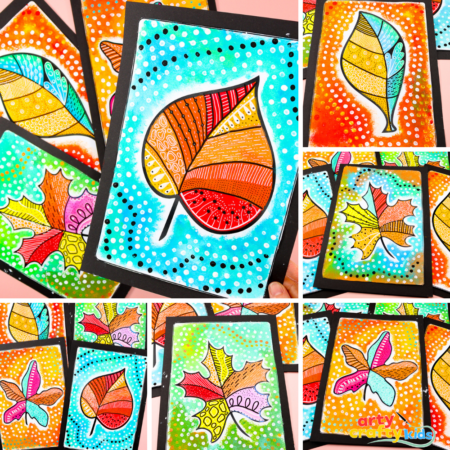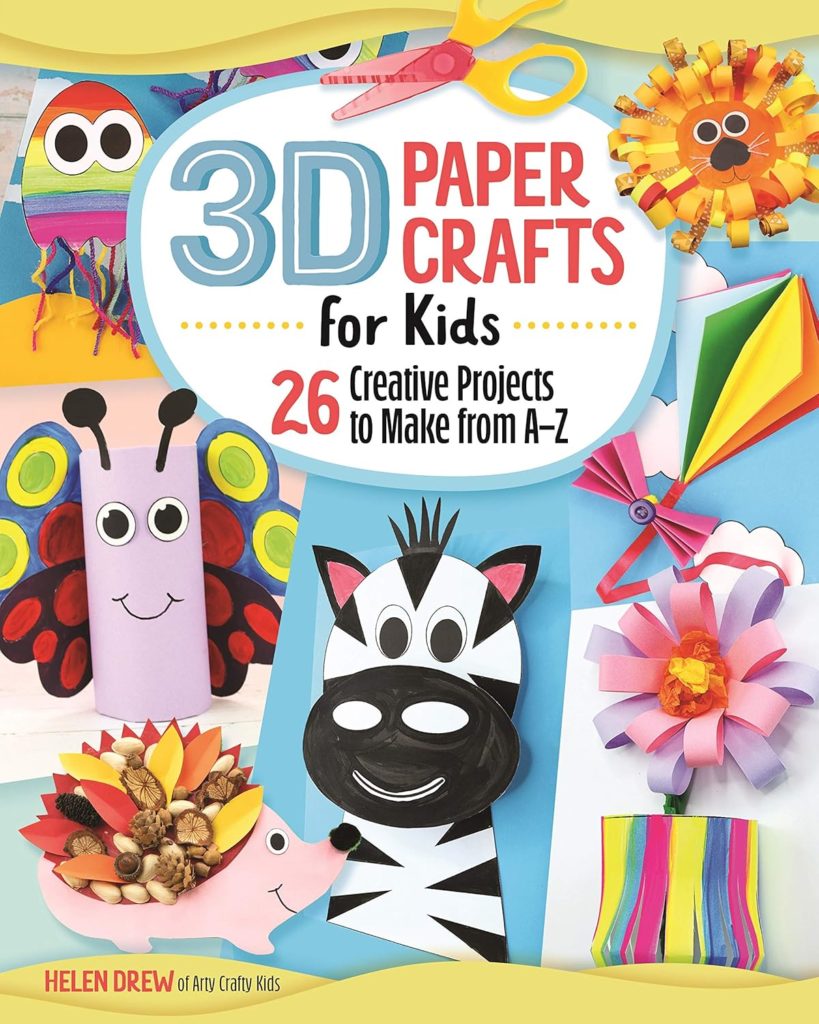Sharing is caring!
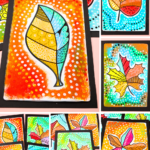
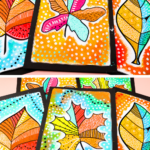
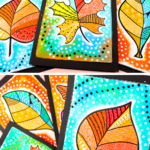
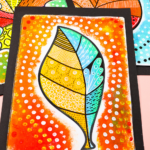
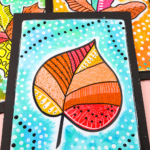
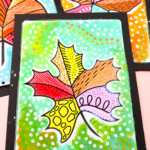
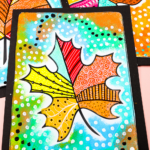
Looking for a creative way to celebrate the changing seasons? This Fall Leaf Painting for Kids is the perfect Autumn art project that blends creativity, pattern-making, and a splash of seasonal color.
Children will explore line, shape, and repetition as they design their own patterned leaves, making this activity as educational as it is fun.
This Autumn art idea for kids encourages observation of nature, fine motor skills through detailed pattern drawing, and color theory as children experiment with warm Fall hues against cool backgrounds.
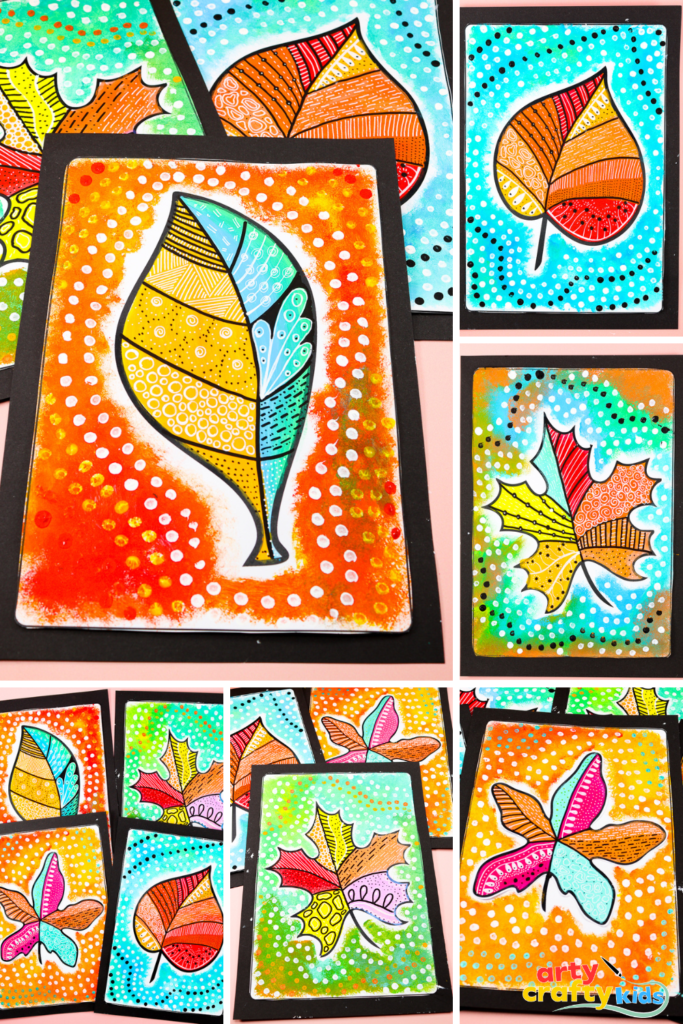
Whether used in the classroom, during homeschool lessons, or as a cozy weekend craft, this leaf painting project provides opportunities to discuss symmetry, seasonal change, and artistic expression.
Engaging, colorful, and full of creative possibilities, this Fall leaf art activity is ideal for developing both artistic confidence and essential early learning skills.
Step-by-Step: Fall Leaf Painting for Kids – Pattern Art Project
Materials:
- White Card Stock
- Paint
- Acylic Paint
- Marker Pens
- Pencil
- Q-tip
- Sponge
- Leaf Templates (members will need to login to access the templates).
Not a Member?
Join the Arty Crafty Kids club to access the Leaf Pattern Art Templates and 100s more Art and Craft templates, How to Draw Guides, and Coloring Pages.

Fall Leaf Art Project
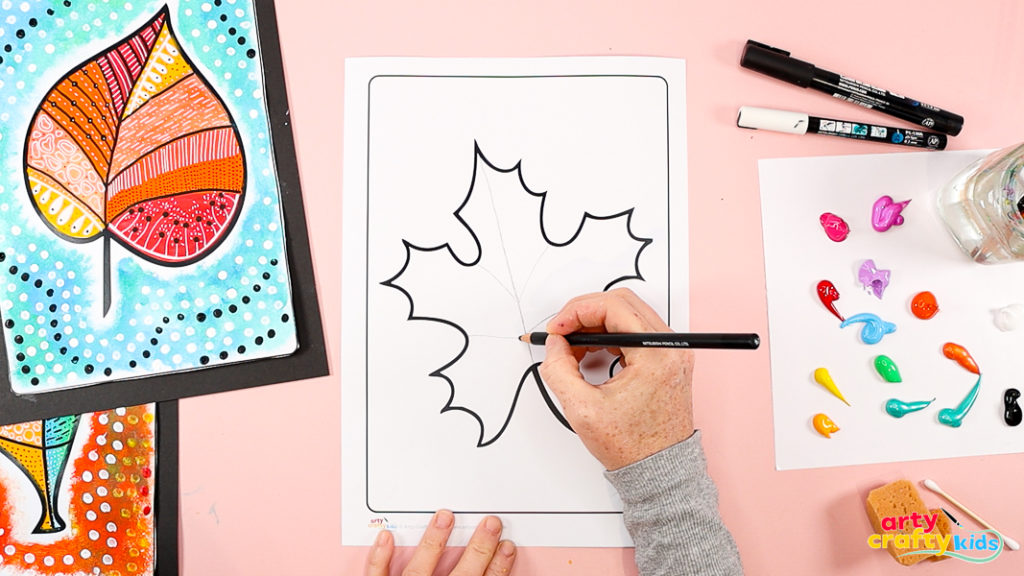
Step 1: Use a pencil to divide the leaves.
Using a pencil, invite children to divide the leaf into sections.
They might choose neat, symmetrical spaces or explore a more abstract, stained-glass effect with uneven segments.
Allowing them to decide the proportions themselves adds creativity and ownership while encouraging spatial awareness.
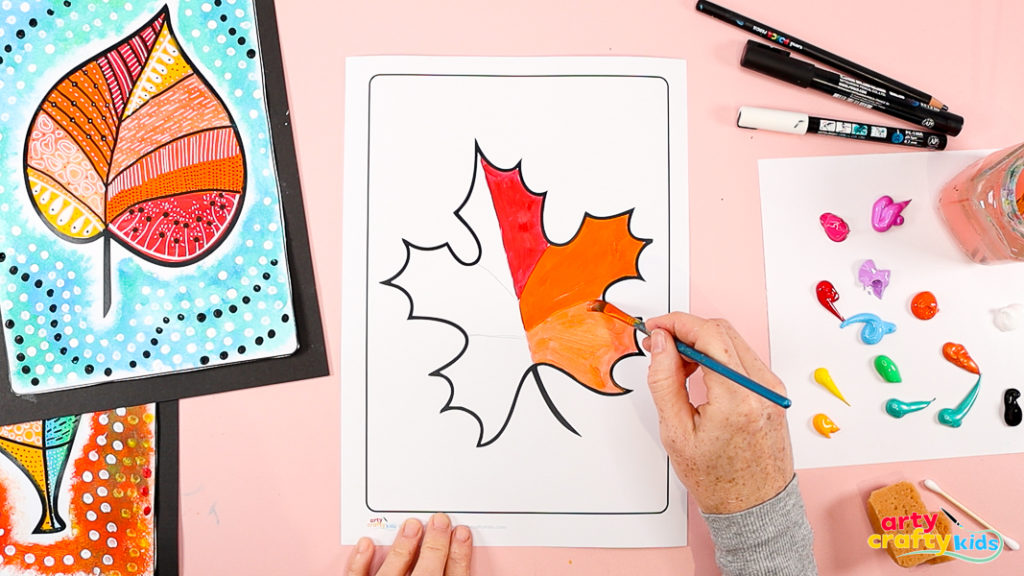
Step 2: Add base colors to the leaves.
Paint each section of the leaf in a different color, mixing warm autumn tones like red, orange, and yellow with pops of green, pink, or turquoise.
This step is perfect for exploring color contrasts and how different shades work together.
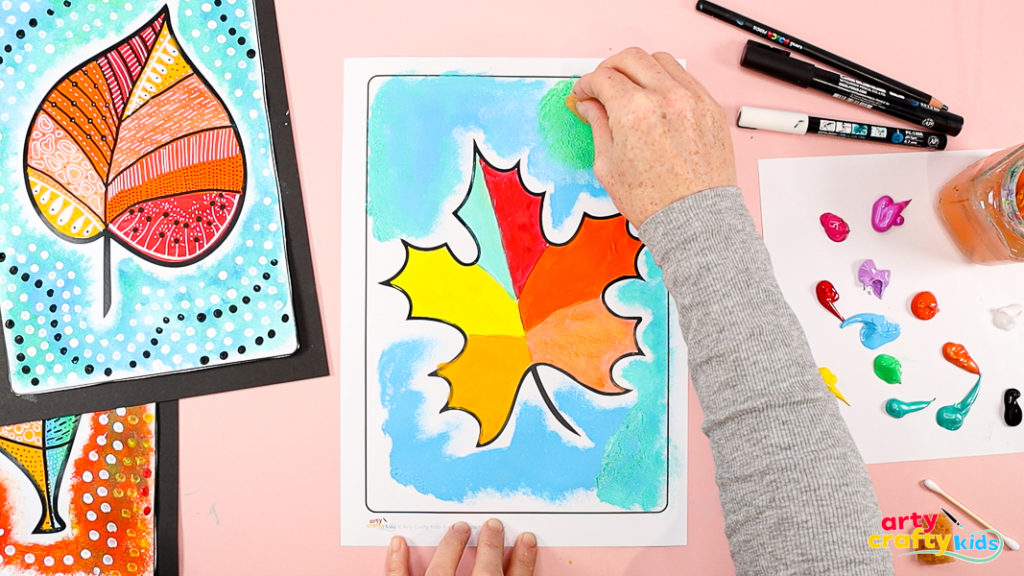
Step 3: Paint the background.
Using a sponge, gently blend colors around the leaf to create soft gradients and texture. For extra impact, choose contrasting shades that will make the leaf stand out.
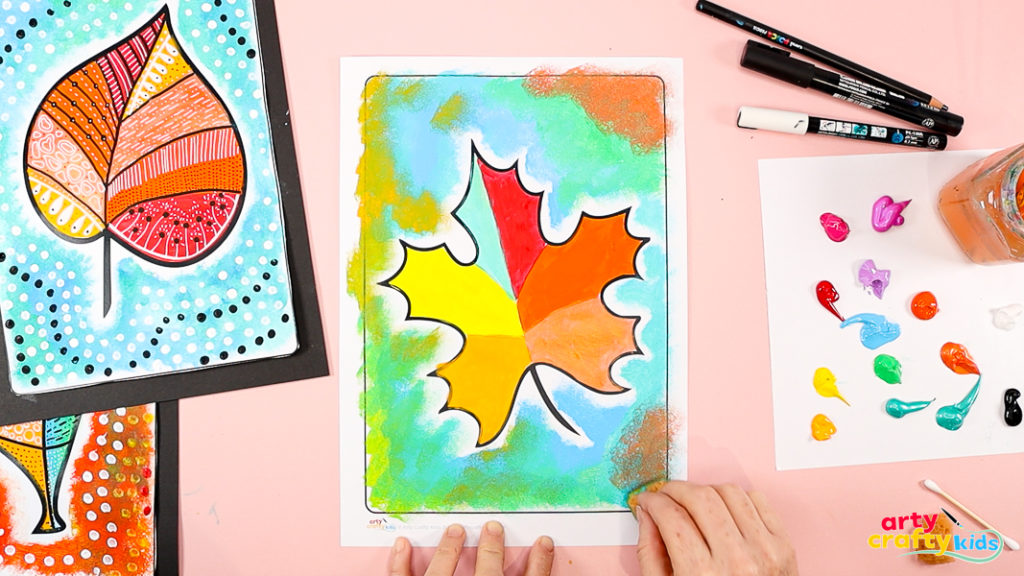
This blending technique introduces children to gradients, layering, and background–foreground relationships in art.
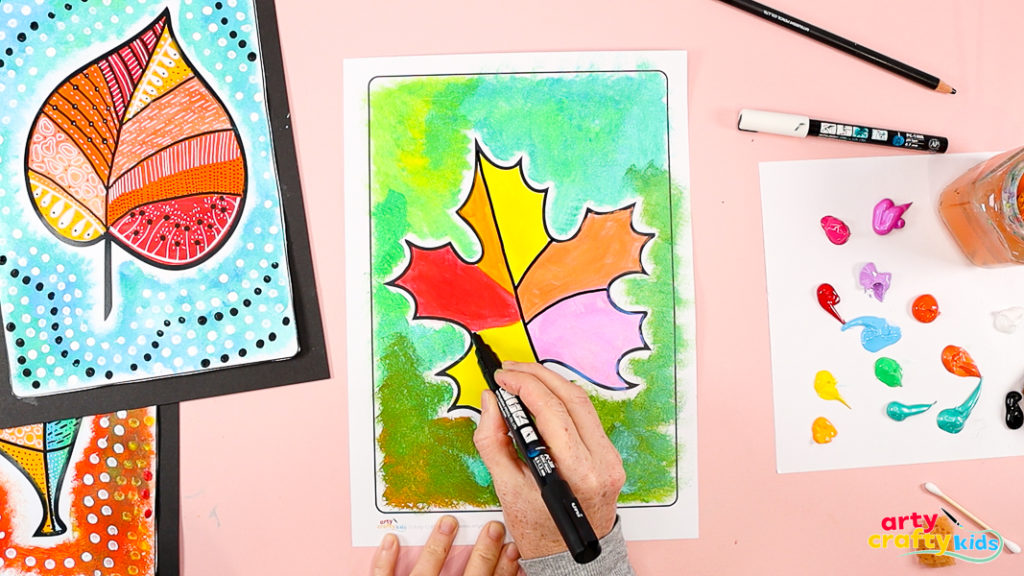
Step 4: Define the leaf segments.
With a black marker, carefully trace over the pencil lines to define each section of the leaf.
This bold outline separates the colors and creates clear spaces for pattern work.
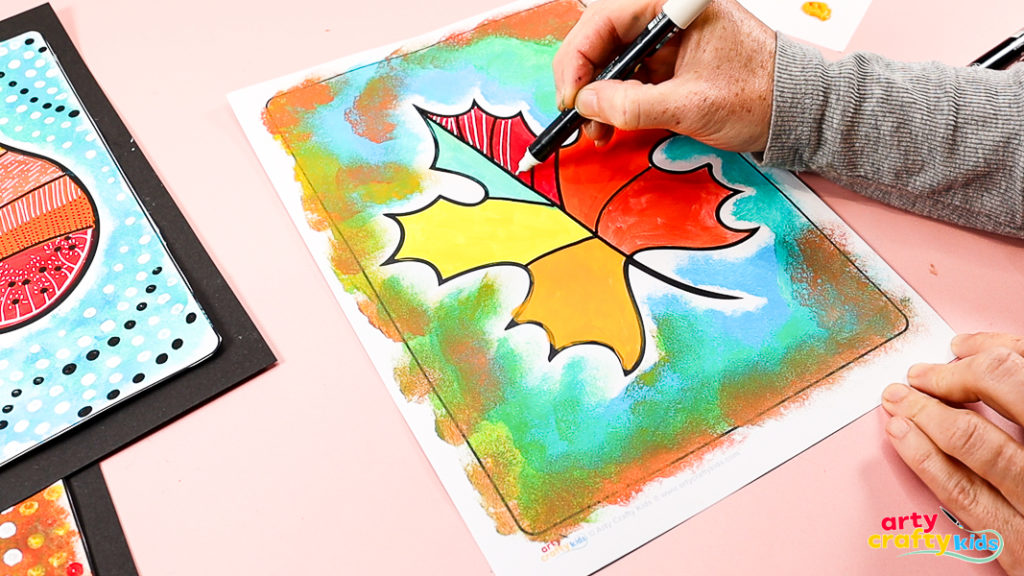
Step 5: Begin adding patterns.
Start filling the colored sections of the leaf with simple patterns.
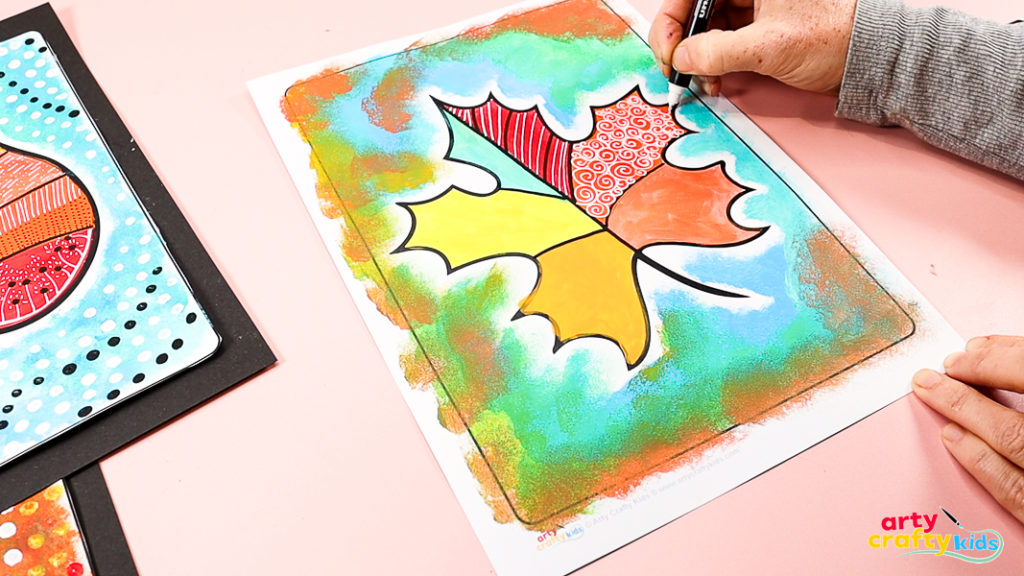
The patterns don’t need to be complicated — simple, repeated shapes like dots, stripes, or swirls can be incredibly effective and help children explore rhythm and repetition in design.
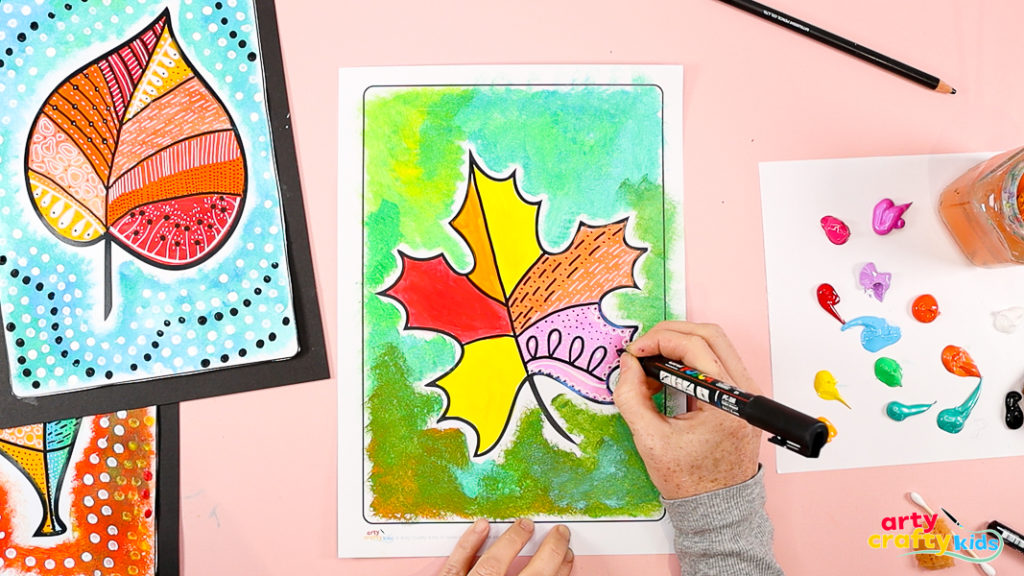
Step 5: Build up the details.
Keep building up the design by filling each section with different patterns.
Encourage children to explore symmetry and asymmetry in their mark-making, experimenting with both regular and irregular shapes.
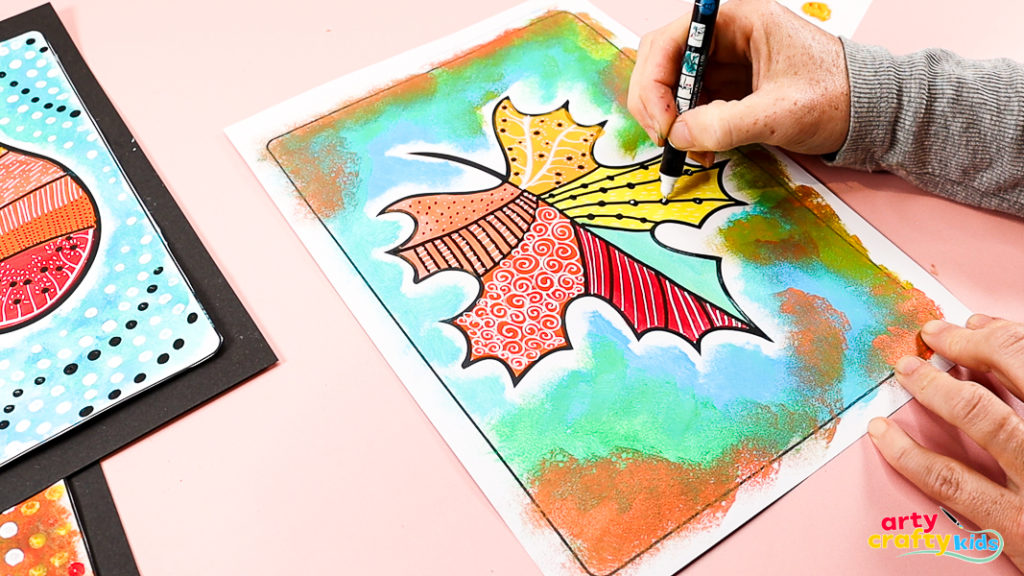
They can also try using a mix of colored pens alongside the black marker.
This step not only develops creativity but also strengthens fine motor skills, spatial awareness, and early math concepts through pattern recognition.
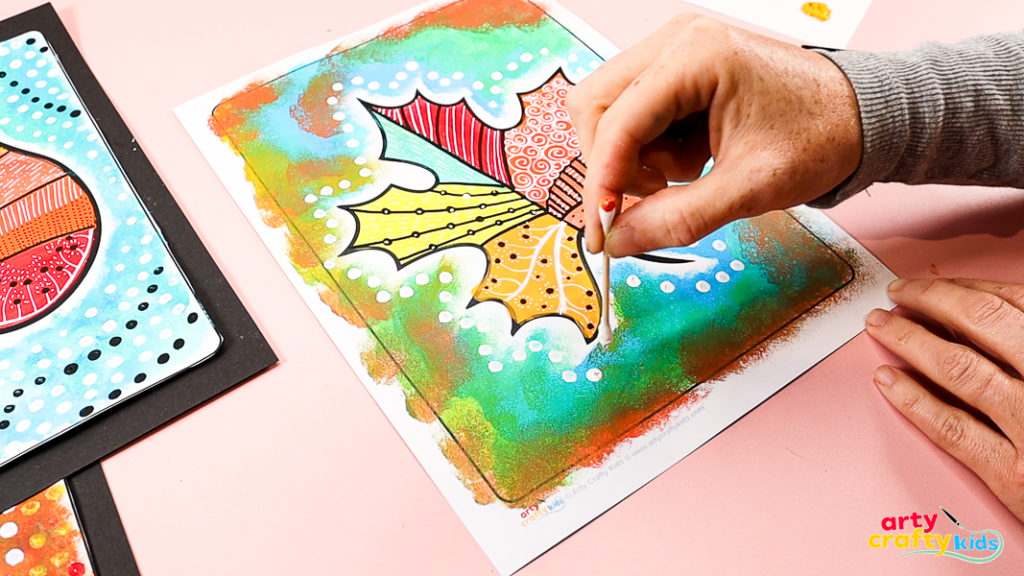
Step 6: Add the final touches.
Dip a Q-tip into paint and outline the leaf with a series of dots, choosing a color that contrasts with the background so it stands out.
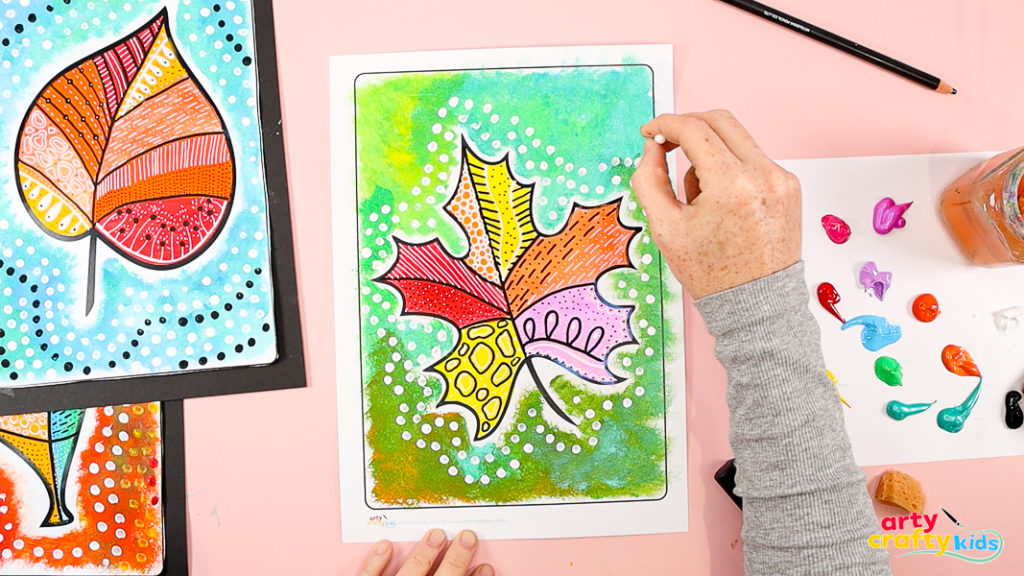
The dotted border adds rhythm and movement, in contrast to the solid, detailed patterns within the leaf.
The effect is as if the leaf is gently swaying in the wind or drifting down from a tree — a wonderful finishing touch that ties the whole composition together.
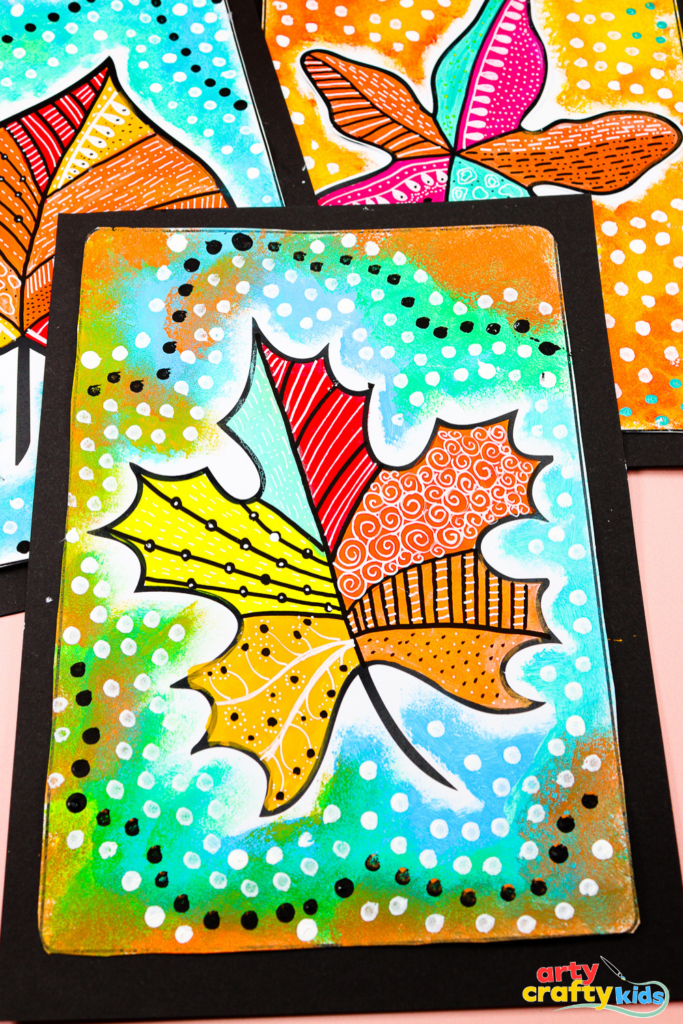
The Fall Leaf Painting Tutorial is Complete
The finished leaves look striking on their own or displayed together as a colorful fall gallery.
This activity is wonderfully flexible — children can keep their patterns simple or challenge themselves with more intricate designs, making it suitable for a wide range of ages and abilities.
Most importantly, it’s about having fun, experimenting with ideas, and seeing how every leaf turns out completely unique.
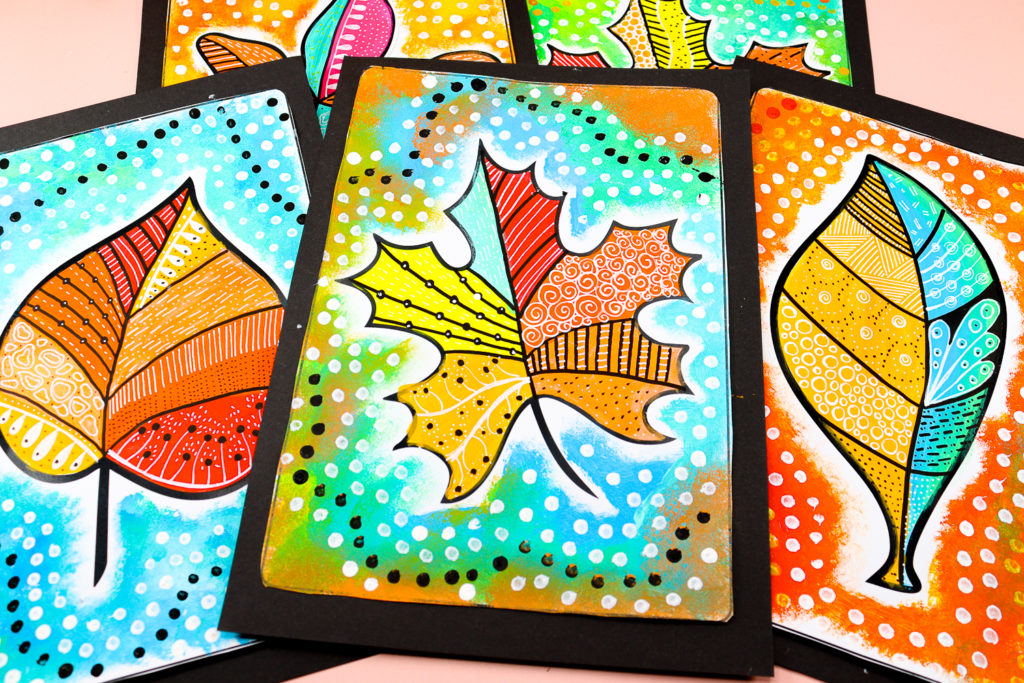
Key Learning Objectives:
- Through this project, children will strengthen their fine motor skills as they paint, outline, and add detailed patterns to their leaf.
- They’ll explore pattern recognition by experimenting with symmetry, asymmetry, and repetition, while also developing an early understanding of rhythm and movement in art.
- The activity playfully introduces color theory, helping children see how warm and cool tones or contrasting shades can make their artwork stand out.
- By dividing the leaf into sections, they practice spatial awareness and proportional thinking, with natural links to early geometry and math concepts.
- Most importantly, the project encourages creative expression, giving children the freedom to make independent design choices and celebrate the uniqueness of their finished piece.

